Law Students and Entrepreneurs Pitch Startup Ideas at LexLab Demo Day
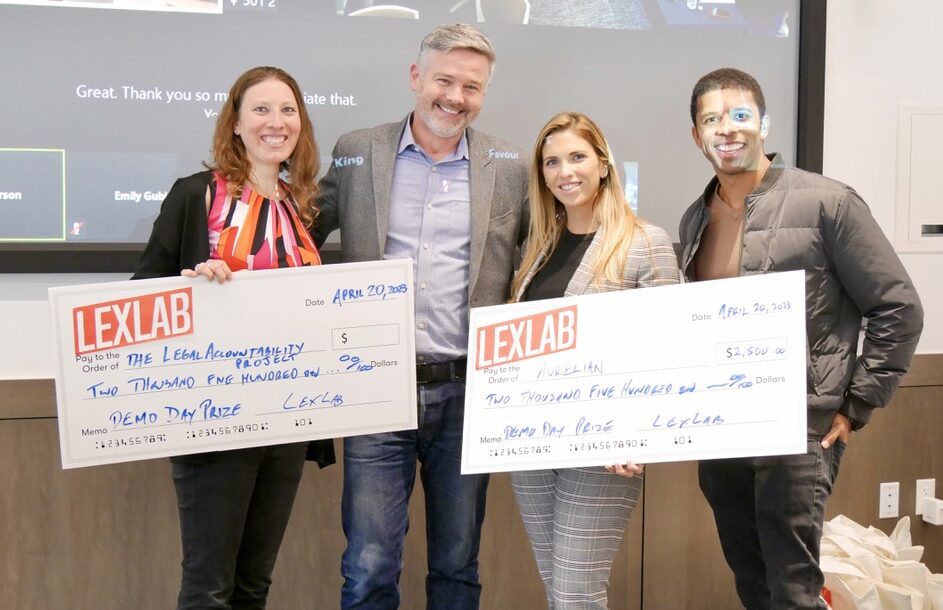
LexLab Director Drew Amerson, center, presented prize checks to contest winners Aliza Shatzman, left, president and founder of the Legal Accountability Project, and Dina Joseph and Mike Jones, right, cofounders of Aurelian, at the Demo Day event in April 2023.
Having investors back consumer lawsuits, reviewing judges for future law clerks, and providing professional attire to law students through a subscription service – were some of the winning ideas this year at a shark-tank-style business pitching competition held at UC Law San Francisco.
The Demo Day competition is hosted each spring by LexLab, a law school center that focuses on law, technology, and innovation, and prepares business-savvy lawyers to shape the future of the legal profession. It offers classes, talks and other events on cutting-edge topics including non-fungible tokens (NFTs), data privacy, and video game law.
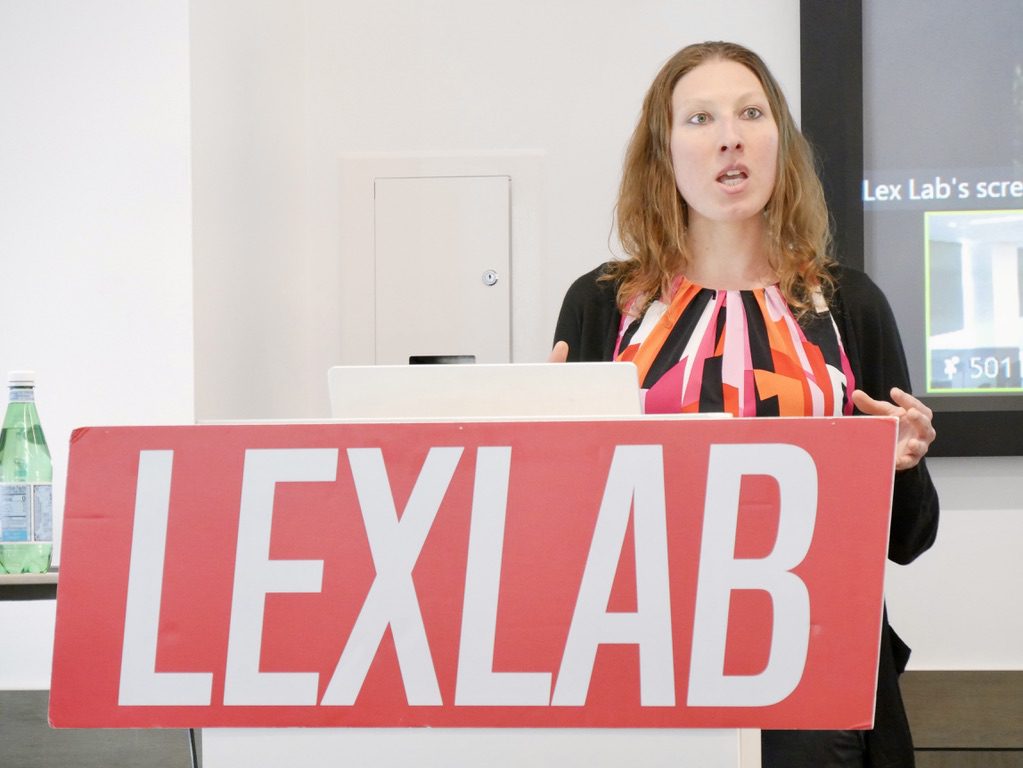
Aliza Shatzman pitched her nonprofit legal technology startup to a panel of judges at Demo Day in April 2023.
This year’s Demo Day included two separate contests – one for law students and one for six Accelerator program participants. The Accelerator program pairs startups with mentors and gives them access to valuable curriculum, guest lectures, and a professional network of legal tech experts and scholars. Law students interact with Accelerator participants through classes and events, sometimes working directly with startups through internships and other opportunities.
Aliza Shatzman, president and founder of The Legal Accountability Project, tied for first place in the startup competition this year. Her nonprofit startup will enable law students to read post-clerkship surveys and get information on judges as managers and chambers culture before applying for clerkships. It aims to ensure law clerks have positive clerkship experiences, while extending support and resources to those who do not.
“Participating in the LexLab Accelerator was a very valuable experience,” Shatzman said. “I enjoyed learning from the other legal tech startups in the cohort. It was great to have a community to seek advice from.”
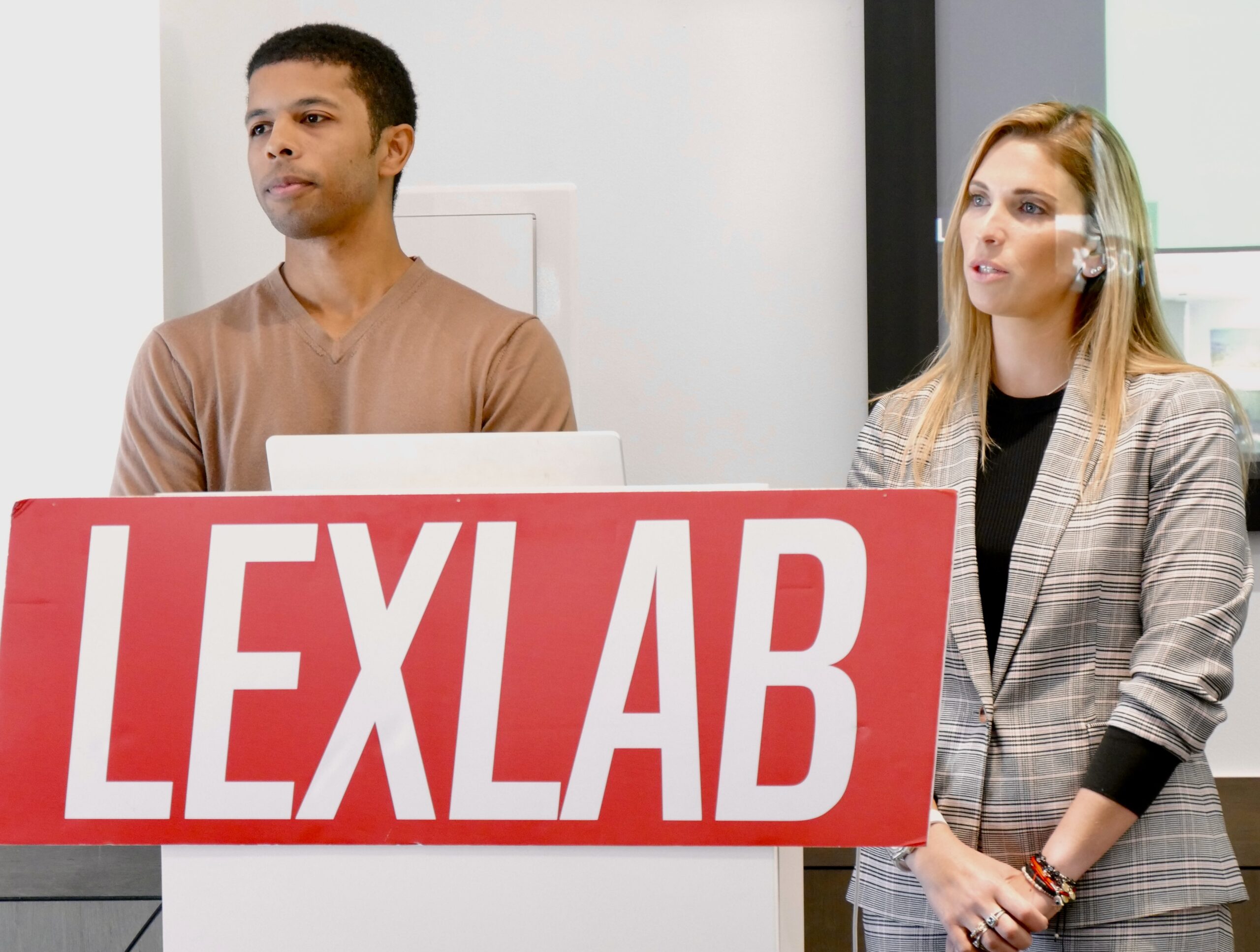
MIke Jones and Dina Joseph pitched their legal tech startup, Aurelian, to a panel of judges at Demo Day.
The other winning team was Mike Jones and Dina Joseph, co-founders of Aurelian, a company that allows investors to back consumer lawsuits and access high returns that can be achieved through contingency fees while supporting a broader mission of consumer protection and corporate accountability.
“It was rewarding and truly an honor to compete against some of these companies that were already established and had sales under their belt,” Joseph said. “Winning validated all the hard work and effort we put into growing this business.”
Both startups split the $5,000 grand prize, each taking home $2,500 in prize money.
The winners also received feedback from a panel of expert judges. This year’s judges included Donald G. Billings, practice support manager for legal technology at Sidley Austin; Sheena Ferrari, director of legal operations at Zendesk; Augie Rakow, startup lawyer and cofounder of Atrium; and Alex Su, head of community development at Ironclad Inc.
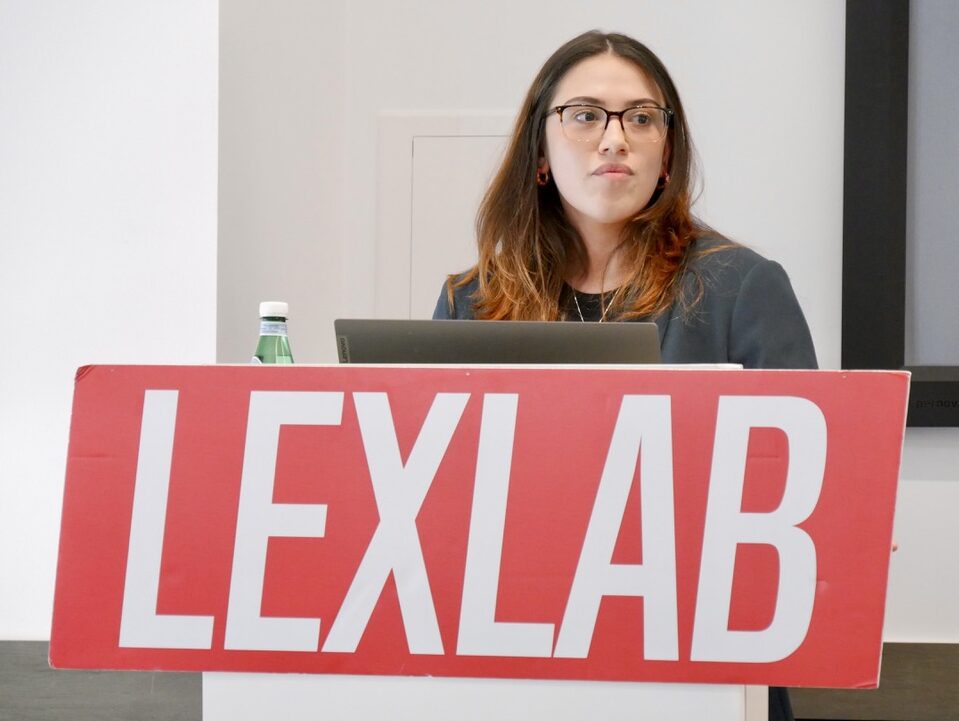
Ale Vallejo ’23 won first place in the startup pitching contest for law students at Demo Day in April 2023.
In the student competition, Ale Vallejo ’23 won first place with her pitch for Blazer, an artificial intelligence (AI)-enhanced service that rents professional attire to subscribing law students and young lawyers. “Presenting in front of the judges was both challenging and rewarding,” she said. “It was a unique opportunity to receive feedback from experienced professionals in the startup world.”
Vallejo developed her business plan during a semester-long class, “Legal Tech: How to Build a Startup,” taught by Alice Armitage, a law professor and director of Applied Innovation at LexLab. The class teaches principles of design thinking, team building, product development strategies, and other business concepts. Though she didn’t take home prize money, Vallejo will receive the CALI Award, which recognizes excellent achievement by law students.
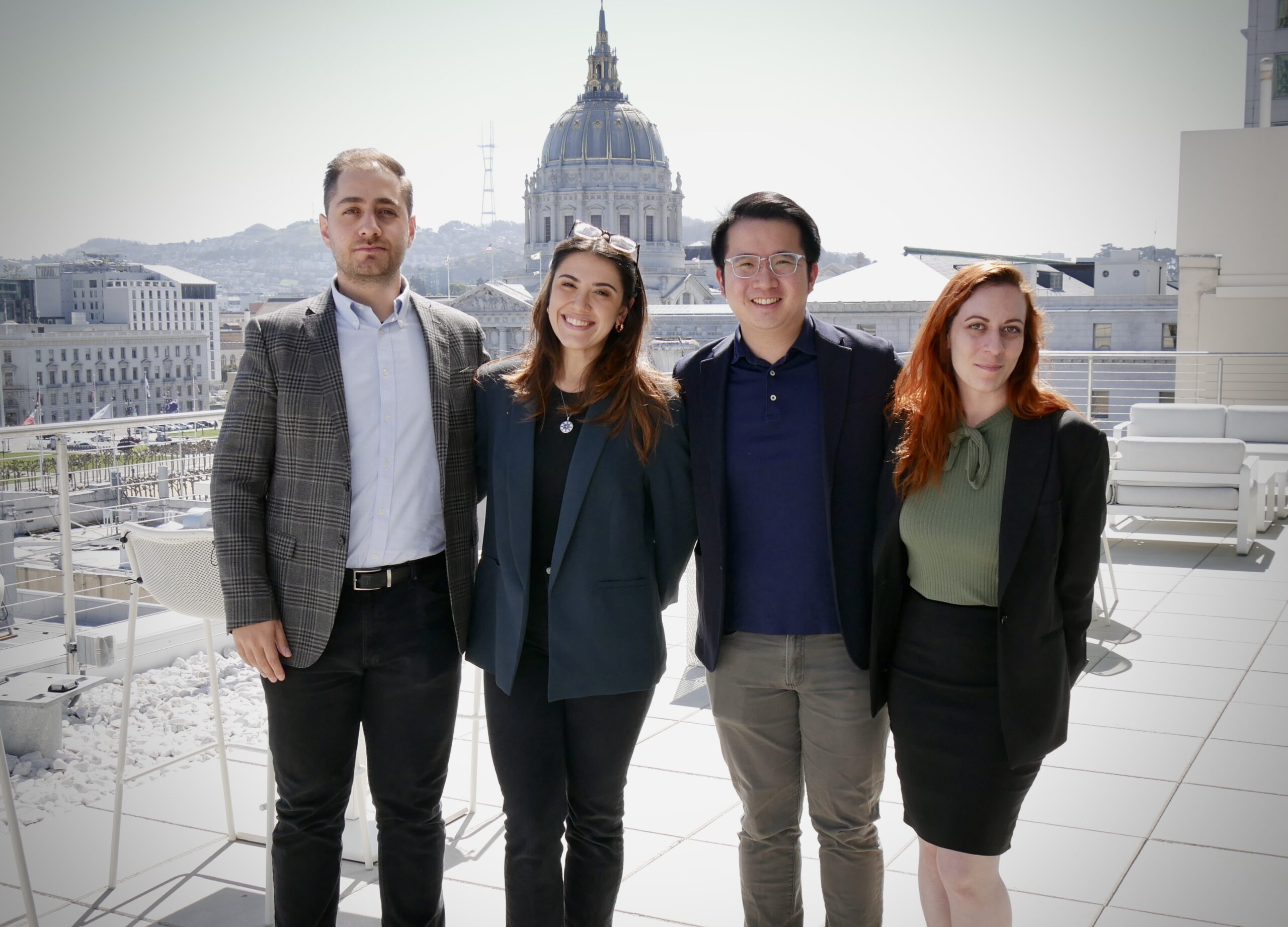
Law students Eduardo Corona LLM ‘23, Ale Vallejo ’23, Eric Ong ‘23, and Julia McCoy ’24 competed in the LexLab Demo Day competition in April 2023.
Three other law students who competed against her in this year’s Demo Day contest included Eduardo Corona LLM ’23, who pitched a legal tech hub for law firms in Latin America; Julia McCoy ’24, who also pitched Blazer; and Eric Ong ’23, who pitched TransparentFee, a platform that would crowdsource reviews and fee information about attorneys in specific geographic regions.
Though other startup competitors didn’t win the prize, their participation in the Accelerator Program still helped advance innovative ideas, some already underway, and some that could develop in the future.

Drew Amerson is the director of LexLab at UC Law San Francisco.
The other Accelerator participants included BackedMe, a platform that uses an automated chatbot to help resolve disputes between users and clients; Briefpoint, a software company that uses AI to rapidly create litigation documents; Ligalio, a platform that creates custom legal documents, including privacy policies, for businesses; and Paraply, an AI-powered Q&A platform that offers legal assistance to consumers with case reviews and co-counseling by real attorneys.
“We had a fantastic group of startups in this year’s cohort,” said LexLab Director Drew Amerson. “We look forward to seeing them use the tools, knowledge, and connections they gained through this program to solve problems and help shape the future of the legal technology.”